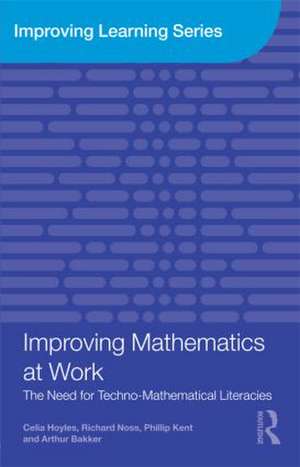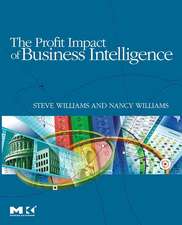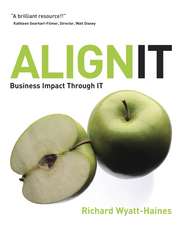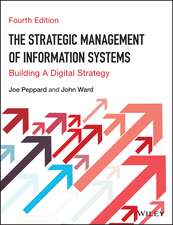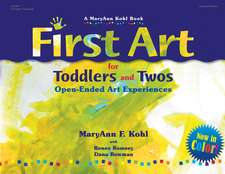Improving Mathematics at Work: The Need for Techno-Mathematical Literacies: Improving Learning
Autor Celia Hoyles, Richard Noss, Phillip Kent, Arthur Bakkeren Limba Engleză Paperback – 5 mai 2010
Examining how information technology has changed mathematical requirements, the idea of Techno-mathematical Literacies (TmL) is introduced to describe the emerging need to be fluent in the language of mathematical inputs and outputs to technologies and to interpret and communicate with these, rather than merely to be procedurally competent with calculations. The authors argue for careful analyses of workplace activities, looking beyond the conventional thinking about numeracy, which still dominates policy arguments about workplace mathematics. Throughout their study, the authors answer the following fundamental questions:
- What mathematical knowledge and skills matter for the world of work today?
- How does information technology change the necessary knowledge and the ways in which it is encountered?
- How can we develop these essential new skills in the workforce?
| Toate formatele și edițiile | Preț | Express |
|---|---|---|
| Paperback (1) | 289.67 lei 6-8 săpt. | |
| Taylor & Francis – 5 mai 2010 | 289.67 lei 6-8 săpt. | |
| Hardback (1) | 1058.79 lei 6-8 săpt. | |
| Taylor & Francis – 5 mai 2010 | 1058.79 lei 6-8 săpt. |
Din seria Improving Learning
- 15%
 Preț: 397.37 lei
Preț: 397.37 lei -
 Preț: 347.19 lei
Preț: 347.19 lei -
 Preț: 307.87 lei
Preț: 307.87 lei -
 Preț: 396.52 lei
Preț: 396.52 lei -
 Preț: 421.63 lei
Preț: 421.63 lei -
 Preț: 436.02 lei
Preț: 436.02 lei -
 Preț: 389.70 lei
Preț: 389.70 lei -
 Preț: 395.20 lei
Preț: 395.20 lei - 17%
 Preț: 287.78 lei
Preț: 287.78 lei -
 Preț: 396.91 lei
Preț: 396.91 lei -
 Preț: 381.72 lei
Preț: 381.72 lei - 17%
 Preț: 239.32 lei
Preț: 239.32 lei -
 Preț: 410.60 lei
Preț: 410.60 lei -
 Preț: 383.83 lei
Preț: 383.83 lei -
 Preț: 382.31 lei
Preț: 382.31 lei -
 Preț: 381.72 lei
Preț: 381.72 lei - 18%
 Preț: 996.33 lei
Preț: 996.33 lei -
 Preț: 395.93 lei
Preț: 395.93 lei -
 Preț: 395.38 lei
Preț: 395.38 lei -
 Preț: 391.13 lei
Preț: 391.13 lei -
 Preț: 434.45 lei
Preț: 434.45 lei
Preț: 289.67 lei
Preț vechi: 347.45 lei
-17% Nou
Puncte Express: 435
Preț estimativ în valută:
55.45€ • 60.25$ • 46.60£
55.45€ • 60.25$ • 46.60£
Carte tipărită la comandă
Livrare economică 21 aprilie-05 mai
Preluare comenzi: 021 569.72.76
Specificații
ISBN-13: 9780415480086
ISBN-10: 0415480086
Pagini: 224
Ilustrații: 38 b/w images and 6 tables
Dimensiuni: 138 x 216 x 15 mm
Greutate: 0.3 kg
Ediția:1
Editura: Taylor & Francis
Colecția Routledge
Seria Improving Learning
Locul publicării:Oxford, United Kingdom
ISBN-10: 0415480086
Pagini: 224
Ilustrații: 38 b/w images and 6 tables
Dimensiuni: 138 x 216 x 15 mm
Greutate: 0.3 kg
Ediția:1
Editura: Taylor & Francis
Colecția Routledge
Seria Improving Learning
Locul publicării:Oxford, United Kingdom
Cuprins
Acknowledgements
1. Introduction
1.1 New Demands on Commerce and Industry
1.2 Information Technology and the Changing Nature of Work
1.3 Background to the Research
1.4 A Description of Key Ideas
1.5 Aims and Methods
2. Manufacturing 1: Modelling and Improving the Work Process in Manufacturing Industry
2.1 Process Improvement in Manufacturing
2.2 Workplace Observations of Process Improvement
2.3 Learning Opportunities for Process Improvement
2.4 Outcomes for Learning and Practice
2.5 Conclusions
3. Manufacturing 2: Using Statistics to Improve the Production Process
3.1 Process Control and Improvement Using Statistics
3.2 Workplace Observations of Statistical Process Control
3.3 Learning Opportunities for Statistical Process Control
3.4 Outcomes for Learning and Practice
3.5 Conclusions
4. Financial Services 1: Pensions and Investments
4.1 The Techno-Mathematics of Pensions and the Work of Customer Services
4.2 Workplace Observations in Pensions and Investments
4.3 Pensions and Investments: Tebos and Learning Opportunities
4.4 Outcomes for Learning and Practice
4.5 Conclusions
5. Financial Services 2: Mortgages
5.1 The Techno-Mathematics of the Current Account Mortgage
5.2 Workplace Observations in Mortgage Sales and Customer Service
5.3 Current Account Mortgages: Tebo and Learning Opportunities
5.4 Outcomes for Learning and Practice
5.5 Conclusions
6. Summary, Reflections and Conclusions
6.1 Key Findings
6.2 Understanding Systems with Models: Pseudo-Mathematical and Techno-Mathematical
6.3 Successes and Challenges
6.4 Conclusions and Implications
Appendix: Details of Fieldwork – Companies and Organisations Which Participated In the Research
Appendix: Further Reading on the Techno-Mathematical Literacies Research
Bibliography
1. Introduction
1.1 New Demands on Commerce and Industry
1.2 Information Technology and the Changing Nature of Work
1.3 Background to the Research
1.4 A Description of Key Ideas
1.5 Aims and Methods
2. Manufacturing 1: Modelling and Improving the Work Process in Manufacturing Industry
2.1 Process Improvement in Manufacturing
2.2 Workplace Observations of Process Improvement
2.3 Learning Opportunities for Process Improvement
2.4 Outcomes for Learning and Practice
2.5 Conclusions
3. Manufacturing 2: Using Statistics to Improve the Production Process
3.1 Process Control and Improvement Using Statistics
3.2 Workplace Observations of Statistical Process Control
3.3 Learning Opportunities for Statistical Process Control
3.4 Outcomes for Learning and Practice
3.5 Conclusions
4. Financial Services 1: Pensions and Investments
4.1 The Techno-Mathematics of Pensions and the Work of Customer Services
4.2 Workplace Observations in Pensions and Investments
4.3 Pensions and Investments: Tebos and Learning Opportunities
4.4 Outcomes for Learning and Practice
4.5 Conclusions
5. Financial Services 2: Mortgages
5.1 The Techno-Mathematics of the Current Account Mortgage
5.2 Workplace Observations in Mortgage Sales and Customer Service
5.3 Current Account Mortgages: Tebo and Learning Opportunities
5.4 Outcomes for Learning and Practice
5.5 Conclusions
6. Summary, Reflections and Conclusions
6.1 Key Findings
6.2 Understanding Systems with Models: Pseudo-Mathematical and Techno-Mathematical
6.3 Successes and Challenges
6.4 Conclusions and Implications
Appendix: Details of Fieldwork – Companies and Organisations Which Participated In the Research
Appendix: Further Reading on the Techno-Mathematical Literacies Research
Bibliography
Notă biografică
Celia Hoyles is Professor of Mathematics Education, London Knowledge Lab, Institute of Education University of London, UK.
Richard Noss is Professor of Mathematics Education and Co-director of the London Knowledge Lab, Institute of Education University of London, UK.
Philip Kent is a Research Officer, London Knowledge Lab, Institute of Education University of London, UK.
Arthur Bakker is a Research Officer in the TmL project, currently at the Freudenthal Institute, Utrecht University, the Netherlands.
Richard Noss is Professor of Mathematics Education and Co-director of the London Knowledge Lab, Institute of Education University of London, UK.
Philip Kent is a Research Officer, London Knowledge Lab, Institute of Education University of London, UK.
Arthur Bakker is a Research Officer in the TmL project, currently at the Freudenthal Institute, Utrecht University, the Netherlands.
Descriere
This book argues that there has been a radical shift in the nature of mathematical skills required for work –which has still not been fully recognised by either the formal education system or by employers and managers.
